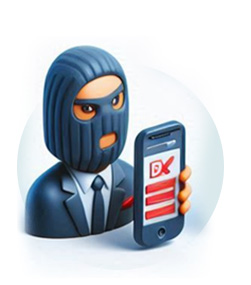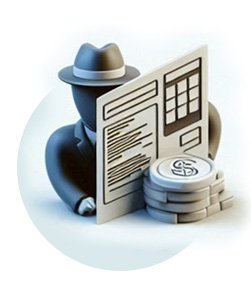Today, we’re discussing an important topic that affects us all: email scams. As technology evolves, scammers become more sophisticated. Let’s discuss the top five most common email scams, how to recognize them, and how you can protect yourself.

SCAM #1: Phishing Emails
First up is Phishing. These emails often appear to be from trusted sources like banks or popular services. They usually ask you to click a link and provide personal information. Tip: Look for poor grammar and suspicious email addresses. Always verify the sender before clicking on any links.

SCAM #2: Lottery or Prize Scams
Next, we have Lottery or Prize Scams. You receive an email claiming you’ve won a lottery or prize you never entered. These scams aim to collect your personal information or ask for payment of fees. Tip: No legitimate contest will ask for money to claim a prize.

SCAM #3: Tech Support Scams
Third on the list is the Tech Support Scam. You may receive an email saying your software requires immediate attention. They may provide contact details for ‘support.’ Tip: Don’t engage with these communications. If you suspect an issue, contact the company directly through their official website or phone number.

SCAM #4: Business Email Compromise
Fourth, be cautious of Business Email Compromise. This targeted attempt often involves someone impersonating a high-ranking official in your company, requesting sensitive information or funds. Tip: Verify any unusual requests through a different communication channel, like a phone call.

SCAM #5: Fake Invoice Scams
Lastly, watch out for Fake Invoice Scams. These emails look like invoices from legitimate providers. They may request immediate payment. Tip: Always cross-check invoices with your financial records and verify through the official channels before taking action.
Staying informed is your best defense against email scams. Always be cautious with your personal information, think twice before clicking links, and remember to verify any requests you receive. If you recognize any of these scams, report them to your email provider.
Staying informed is your best defense against email scams. Always be cautious with your personal information, think twice before clicking links, and remember to verify any requests you receive. If you recognize any of these scams, report them to your email provider.
Stay safe online!
Please share this information with family and friends to help keep everyone protected.
#EmailScams #Phishing #CyberSecurity #StaySafeOnline #ScamAwareness #OnlineSafety #ProtectYourself #FraudPrevention #TechSupportScams #BusinessEmailCompromise #FakeInvoices #ScamAlert #InternetSafety #DigitalSecurity #ScamPrevention #CyberAwareness #SecurityTips #KnowTheScam #AwarenessMatters #DoGoodMarketing







